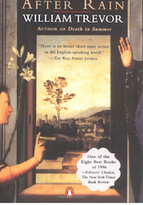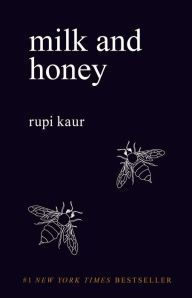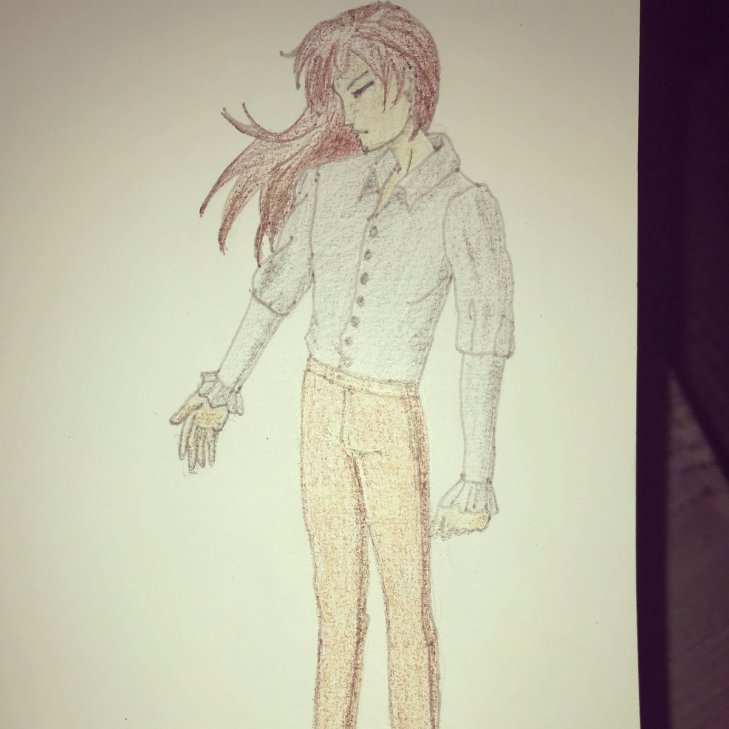Reading William Trevor’s After Rain, had avoided the late Irish short story writer and novelist, as he was often paired with Chekhov, something which seemed overblown to me. (When any writer gets heaps of adulation, and friends clutch your elbow and say “you must read this” my default reaction is resistance. )
But the Chekhov comparison is not overblown. Trevor explores similar themes, subtle but devastating moments of personal choice, and the cadence of the his prose, (also like Chekhov’s or at least Constant Garnett’s translation thereof) is quiet, but musical in its restraint. No detail is extra. Here’s family dinner at the Leesons in “Lost Ground,”
 Having paused while the others were served– that, too, being a tradition in the family– Milton began to eat again. He liked the champ best when it was fried. You could warm it in the oven or in a saucepan, but it wasn’t the same. He liked crispness in his food– fingers of a soda farl fried, the spicy skin of a milk pudding, fried champ. His mother always remembered that. Milton sometimes thought that his mother knew everything about him and he didn’t mind: it made him fond of her that she bothered. He felt affection for her when she sat by the Esse on winter’s evenings or by the open back door in the summer, sewing and darning. She never read the paper and only glanced up at the television occasionally. His father read the paper from cover to cover and never missed the television News. When Milton was younger he’d been afraid of his father, although he’d since realized that you knew where you were with him, which came from the experience of working with him in the fields and the orchards. ‘He’s fair,’ Mrs. Leeson used to repeat when Milton was younger, “Always remember that.”
Having paused while the others were served– that, too, being a tradition in the family– Milton began to eat again. He liked the champ best when it was fried. You could warm it in the oven or in a saucepan, but it wasn’t the same. He liked crispness in his food– fingers of a soda farl fried, the spicy skin of a milk pudding, fried champ. His mother always remembered that. Milton sometimes thought that his mother knew everything about him and he didn’t mind: it made him fond of her that she bothered. He felt affection for her when she sat by the Esse on winter’s evenings or by the open back door in the summer, sewing and darning. She never read the paper and only glanced up at the television occasionally. His father read the paper from cover to cover and never missed the television News. When Milton was younger he’d been afraid of his father, although he’d since realized that you knew where you were with him, which came from the experience of working with him in the fields and the orchards. ‘He’s fair,’ Mrs. Leeson used to repeat when Milton was younger, “Always remember that.”
Trevor was also a master of crafting a deft, quietly devastating last move in a short story. Novels mostly need ‘finales’; short stories can end with a stab to the heart. (Nothing better in this line than the end of “The Lottery.” Annie Proulx is no slouch either, “There was some open space between what he knew and what he tried to believe, but nothing could be done about it, and if you can’t fix it you’ve got to stand it.”)
Part of what makes these endings possible is that stories are quick glances, not synoptic panoramas. From the obit for him in the Guardian.
“…In a 1989 interview, Trevor compared writing short stories to impressionist art. “I think it is the art of the glimpse. If the novel is like an intricate Renaissance painting, the short story is an impressionist painting. It should be an explosion of truth. Its strength lies in what it leaves out just as much as what it puts in, if not more. It is concerned with the total exclusion of meaninglessness. Life, on the other hand, is meaningless most of the time. The novel imitates life, where the short story is bony, and cannot wander. It is essential art,”
Advertisements Share this:




